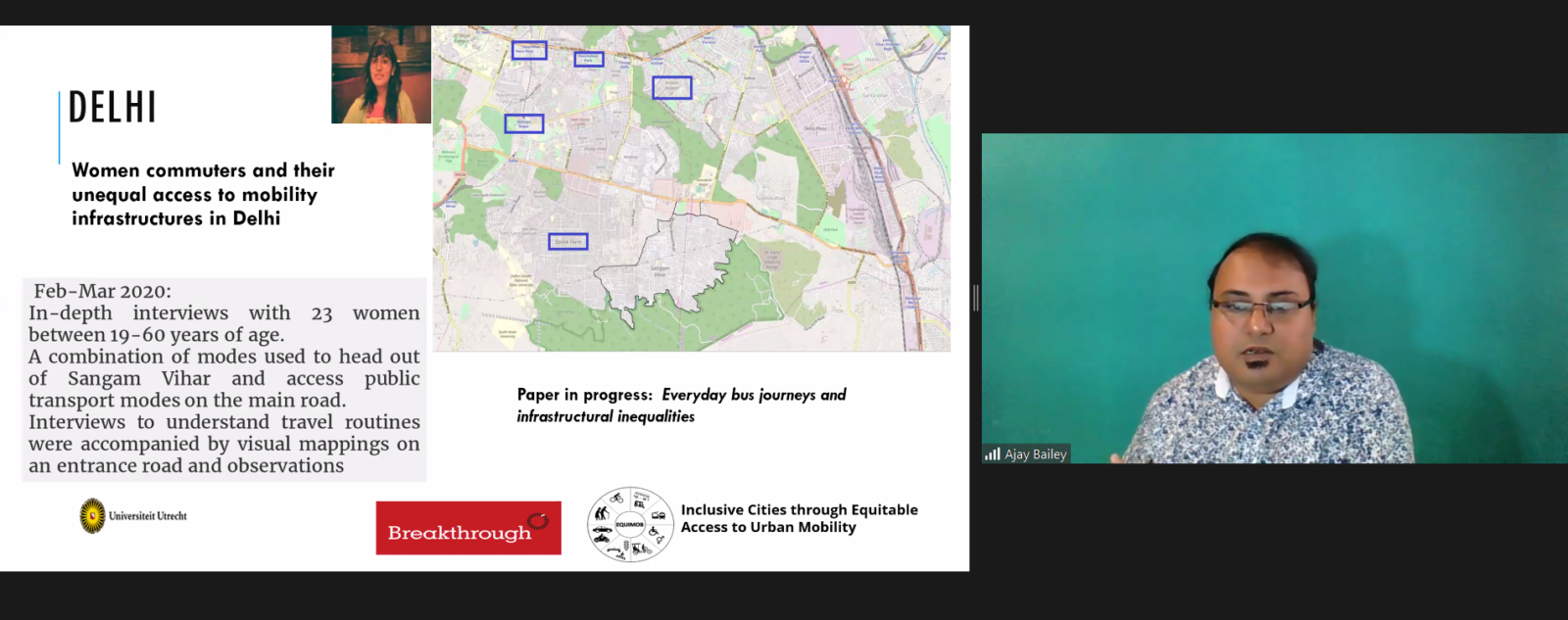News
Presentation at online event ‘Conversations on Ageing’
Prof. Ajay Bailey, the principal investigator of the EQUIMOB project, was invited to speak at the International Seminar on Conversations on Ageing on 8th September 2021. The event was co-organised by the Institute for Social and Economic Change (Bengaluru, India), Madras Institute for Development Studies (Chennai, India) and the University of Edinburgh (Edinburgh, UK) and funded by the Global Challenges Research Fund, University of Edinburgh.

Prof. Bailey presented empirical evidence on ageing and mobility challenges drawing on the EQUIMOB research in the cities of India (Delhi, Kolkata and Bengaluru) and Bangladesh (Dhaka). The detailed presentation explained the diverse set of barriers ageing could pose to access different modes of transport for everyday activities. The importance of first and last-mile connectivity, focus on age-relevant modes such as walking and public transport and finally, the subjective experiences formed the central elements of the presentation. The discussant appreciated the use of intersectionality to approach multidimensional inequalities (apart from age), such as gender, location, physical ability, class, and social position, which multiply the barriers. The forum provided an opportunity for EQUIMOB researchers to contribute to the discussion on healthy ageing and participate in the dialogue with policymakers and practitioners working collaboratively on promoting healthy ageing in India.

